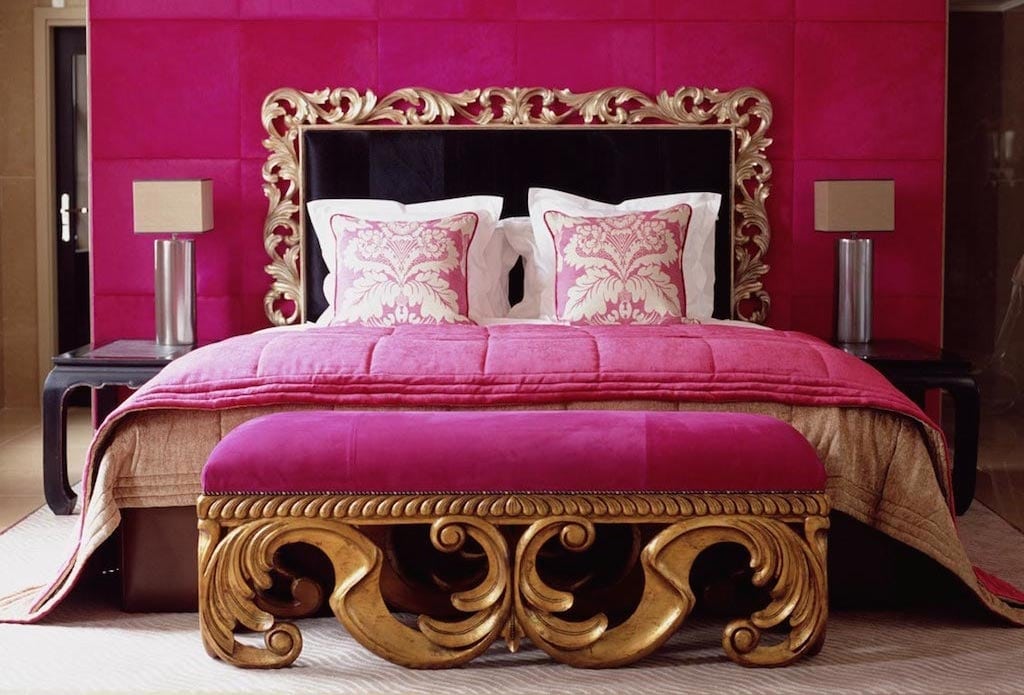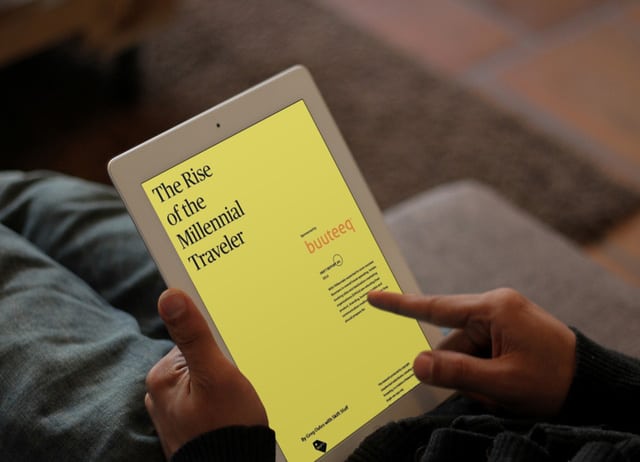New Quorvus Collection Luxury Hotel Group Targets Upscale Millennials

Skift Take
- The May Fair Hotel London
- G&V Royal Mile Hotel Edinburgh
- Symphony Style Hotel Kuwait
Presently operating 1,345 hotels worldwide, the Carlson Rezidor Hotel Group is moving into the luxury sector with its new Quorvus Collection brand, beginning with three trendy hotels in the U.K. and Middle East.
Carlson Rezidor also operates Radisson, Radisson Blu, and the newly minted Radisson Red lifestyle brand launching in 2015, as well as a handful of select service chains.
Targeting the younger luxury traveler, the Quorvus Collection consists of The May Fair Hotel London, the G&V Royal Mile Hotel Edinburgh, and the Symphony Style Hotel Kuwait. All of them have a colorful designer aesthetic that sets the properties apart in their respective markets.
For example, the Royal Mile in Scotland's capital extends through the Old Town leading up to Edinburgh Castle, lined with a phalanx of tartan shops, old pubs and 17th century parliament buildings that inspired the visuals in Harry Potter. The G&V meanwhile is a bold shot of modern style in complete contrast to other luxury hotels like the iconic Balmoral and Waldorf Astoria nearby.
The Royal Mile and Symphony hotels were previously branded as Missoni Hotels, a recently dissolved partnership between the Italian fashion label Missoni and Carlson Rezidor. Those are both available for booking on the Quorvus site as of last month. The Mayfair—part of the Radisson Blu Edwardian sub-brand in Britain—will start taking reservations on the Quorvus site within the next couple months.
What’s interesting here is watching how an established global hotel group builds a new luxury brand from scratch in a segment undergoing significant shifts in consumer behaviors. Aligning the brand with more youthful travel trends, most noticeably manifested in the contemporary, non-standardized and almost whimsical design, provides a blank slate to embrace future trends and a wide range of destination-specific experiences in the public spaces.
“We definitely have identified a white space, and not just in terms of product characteristics and where luxury is going today, but we've also had a lot of interest from our developer community and ownership to be able to provide a luxury offering,” says Rose Anderson, VP branding, Radisson Blu, Radisson Red & Quorvus Collection.
Honing in on that opening in the market, Carlson Rezidor is trying to get out in front of the next generation of luxury travelers at the top end of the Millennial bracket. Anderson says the company’s internal research shows that “13% of all luxury consumption is done between the ages of 18-33, and it's growing significantly.”
Anderson says, based on that insight, there is really no overarching theme in terms of interior or exterior design due to Gen Y demand for destination-specific authenticity. Every future Quorvus Collection property will be chosen based on its ability to offer something new and aesthetically inspired in its respective market.
“Every hotel in the collection will have a very unique story, a unique style from a product perspective that all have very different expressions,” says Anderson. “Some will be modern, some will be traditional, and all of them will be designed to bring the local culture into the heart of the hotel, which we know is what the modern luxury consumer is really looking for today.”
There is precedent for that design-led thinking at Carlson Rezidor. In Europe, the Radisson Blu business hotels are a much different entity than the somewhat staid Radisson chain in America. From Glasgow to Berlin, the Blu hotels often have the most unique architecture in their competitive set. That tradition is continuing with the arrival of Radisson Blu stateside since 2012 in Chicago, Minnesota, and most recently Philadelphia.
The overall brand development behind Quorvus Collection is also somewhat unique. It revolves around a series of brand pillars identified collectively as “Eidos.” In anthropology, the term refers to a distinctive expression of a culture’s intellectual character.
“For us the definition of Eidos is it's an essential expression, a form of intuition, and a distinctive character of culture at Quorvus Collection,” says Anderson. “It's really for us about what you see and what you feel and where you belong.”
The core pillars are: Wellness, Replenishment, Maintenance, Inspiration, Entertainment, Connectivity and Tailored. This feels like a relatively fresh take on luxury branding because there’s absolutely nothing here specifically referring to pampering, indulgence or glamour.
Rather, Quorvus is putting a priority on amenities and services such as free dry cleaning (Maintenance), iPad loan (Connectivity), Netflix or similar access (Entertainment), and free guest passes to cultural events (Inspiration).
Anderson says, “Everyone is sort of singing the same song, so what is really important as you launch a new brand are these pillars, which helped us focus on areas of differentiation.”
The Inspiration pillar is especially intriguing.
“Inspiration is one of those buckets where you can really do so much to curate experiences that are all about the local culture,” explains Anderson. “Take for example the Edinburgh Festival in August. It's impossible to get tickets to the great shows and the great events, but we get the tickets a year in advance. And we ensure that we have those tickets available so when one of our customers walks through the door last minute, we can say, 'We've got exclusive tickets to this event tonight. Would you be interested in going?’"
Looking ahead, the development pipeline will focus primarily on Asia Pacific, the Middle East and key European cities, with plans to open 20 Quorvus Collection properties by 2020.
Greg Oates covers hotel/tourism development and travel brand media. He has toured over 1,000 hotels in 50+ countries. email / twitter








